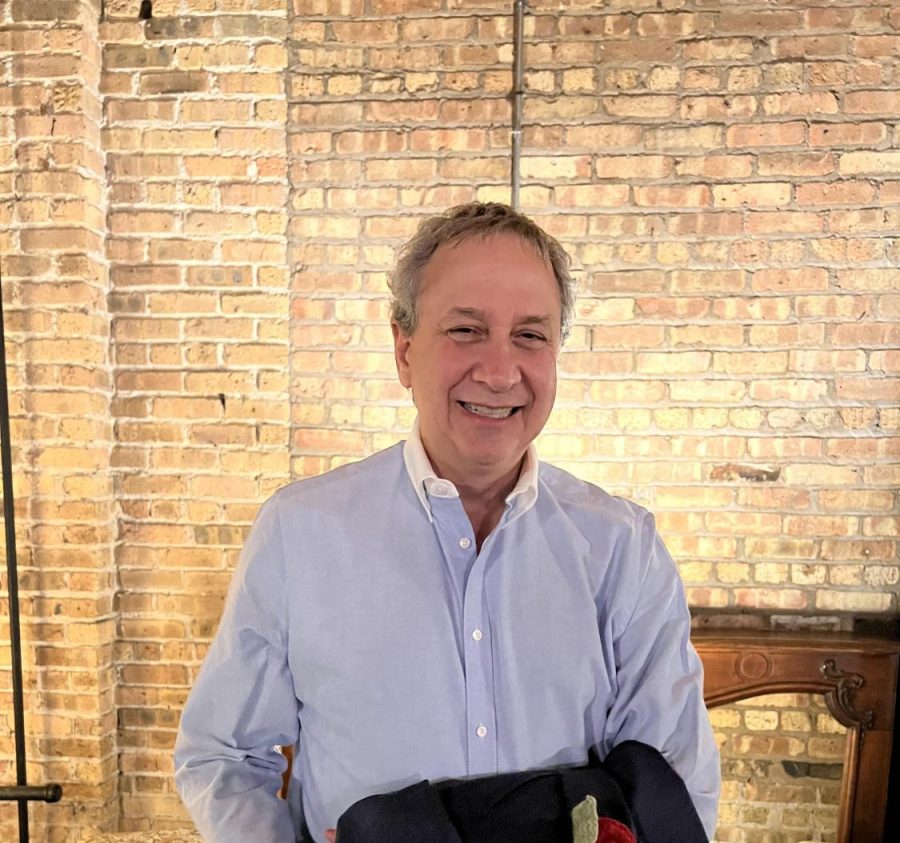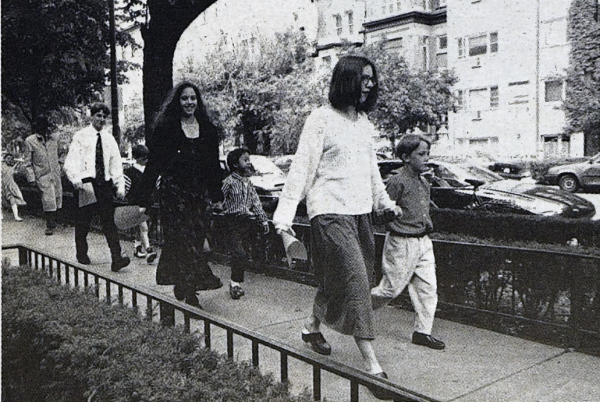Demystifying the Role of Board Chair
Latin’s Board of Trustees is one of the school’s biggest mysteries. Who is on it, how did they get there, and most importantly, what on earth do they do?
The 33 trustees currently on the Latin Board come from a range of backgrounds, as the Board aims to provide representation for the entire community. Board members include current and past parents, alumni, and at least one unaffiliated member who simply loves Latin. The Board was fortunate enough to welcome 10 new trustees for this school year. But this robust machine would not operate without the guidance of the Board Chair.
A shared love of giving back to their community is a commonality that every Board Chair holds. Jeff Sharp served as Latin’s Board Chair from 2009-2012. “I recommend volunteering to anybody,” he said, adding that he is “a believer that people should [volunteer] throughout their life if they have the time and means to give.”
The responsibilities of the Board Chair start with establishing the mission and vision of the school in coordination with the full Board, the Head of School, and the Latin’s administration. Other notable duties include fundraising, planning for the school’s future, and, on occasion, selecting a new Head of School.
Mr. Sharp, who held an essential role in the recruitment of former Head of School Randall Dunn during his first year as Board Chair, said, “The Board’s biggest responsibility is to hire the Head of School.”
Hiring a Head of School, though, is no easy task. The Board is first tasked with finding an executive search firm to develop a position description and identify candidates. The search firm reviews all candidates who have applied to the role. (There may be as many as 100 applicants.) Then, the top 12 or so candidates are selected as semifinalists, and the Board’s Head Search Committee is given their credentials and resumes. The Search Committee then narrows the pool to their top three to five candidates—the “finalists”—who go through a series of interviews with Board members, faculty, staff, administrators, alumni, and students.
In the latest search, which brought Head of School Thomas Hagerman to Latin, a faculty committee worked in tandem with the Board’s Search Committee and played an essential role in interviewing and selecting candidates. In addition, one faculty member served on the Board’s Search Committee itself so that the faculty voice was present in the interviews and the subsequent deliberations.
Mr. Sharp recalled the earlier search that brought Mr. Dunn to Latin. “I worked with groups of people who had different ideas but the same goal,” he said. In Latin’s case, it was finding the candidate who best aligned with the mission of the school: “The Latin School of Chicago provides its students with a rigorous and innovative educational program in a community that embraces diversity of people, cultures and ideas. Latin inspires its students to pursue their passions and lead lives of purpose and excellence.”
The Board Chair is often a parent of one or more students currently enrolled at Latin, and it’s essential that Chairs (and all Board members) separate their roles as parents from their roles as trustees. Uniquely, during his time as Chair, Mr. Sharp’s son Dillon, who graduated in 2010, held the position of senior prefect.
Initially, Mr. Sharp noted, this was challenging to navigate. Dillon “had things he wanted to accomplish, but I’m just the Board Chair and don’t run the school.” He added, “Most of [the Board members] are educated [but are] not educators.”
Similarly, Latin’s current Board Chair, Robert Chapman ‘78, said in an email, “The Board does not involve itself in the day-to-day operations of Latin. The responsibility for overseeing the school’s real-time operations lies with our Head of School and his Senior Administrative Team.”
In efforts to provide clarity on the operations of the Board during her time as Board Chair from 2016-2020, Georgy Ann Peluchiwski made an effort to “put a human face on the Board” by developing programming to demystify the role of the Board. She attempted to connect to faculty and staff by holding meetings to provide transparency about the Board’s intentions for the school.
Mrs. Peluchiwski said that members of the faculty, administration, and Board “would sit in a room and learn about each other in order to make decisions for the future. Instilling educational philosophy is a huge privilege and responsibility.” This responsibility cannot solely be accomplished by the Board.
The fact that some Board members are parents of students at the school can create an interesting dynamic not just for the trustees but also for the students. Junior Reese Benford said, “Having a parent on the Board has not impacted my experience at Latin. Sometimes I wish my dad was not on the Board because, generally, the Latin Board takes a lot of fire.”
And the fire has not ceased as the role of Board Chair becomes more challenging with the addition of the Latin School Union (LSU). In the collective bargaining process, Board representatives, including Mr. Chapman, are on the opposite side of the table from the faculty, even though the Board views its role as supporting everyone at the school.
The Board has not always been on the center stage of the Upper School. Mr. Chapman said that during his time as a student, “We didn’t have to deal with the Board too much.” In recent years with the expansion of the Upper School, the building of the Middle School, and the increase in the student population, the Board’s participation has become more evident.
Looking into the future, Mr. Chapman shared an essential goal: “to strengthen the bridges that exist between Latin and its stakeholders: school and faculty, Board and faculty, administration and the community.”
These endeavors would not be possible without the numerous contributions that are made to benefit the school. After all, tuition only funds about 80 percent of school costs, and much of the other 20 percent is fulfilled by donations.
However, the Board does not have a donation requirement in order to serve as a trustee, and there is no requirement that Board members’ giving levels are made public. Before joining the Board, when Mr. Chapman was meeting with other Board members, he said he had been under the assumption that the Latin Board had a giving requirement, but this was not the case.
He said, “I was waiting for them to bring up a giving requirement, but they never did. I increased donations [when I became a member of the Board], not because of an obligation as Board Chair but because I want to.” He added that he hoped “everyone places Latin in [their] top three giving priorities.”
Throughout his continued tenure, he hopes to stay true to the message outlined in the school’s strategic plan by continuing to, “build academic excellence in and outside of the classroom [as it] is not something that happens by mistake but takes a lot of intentional thought.”





















































Zach McArthur • Dec 3, 2022 at 6:42 am
Couldn’t ask for a better board chair. Bob loves Latin through and through and is so easy to talk to and connect with. Thanks for this great article, Phoebe — you did a wonderful job outlining Bob and the board’s work!